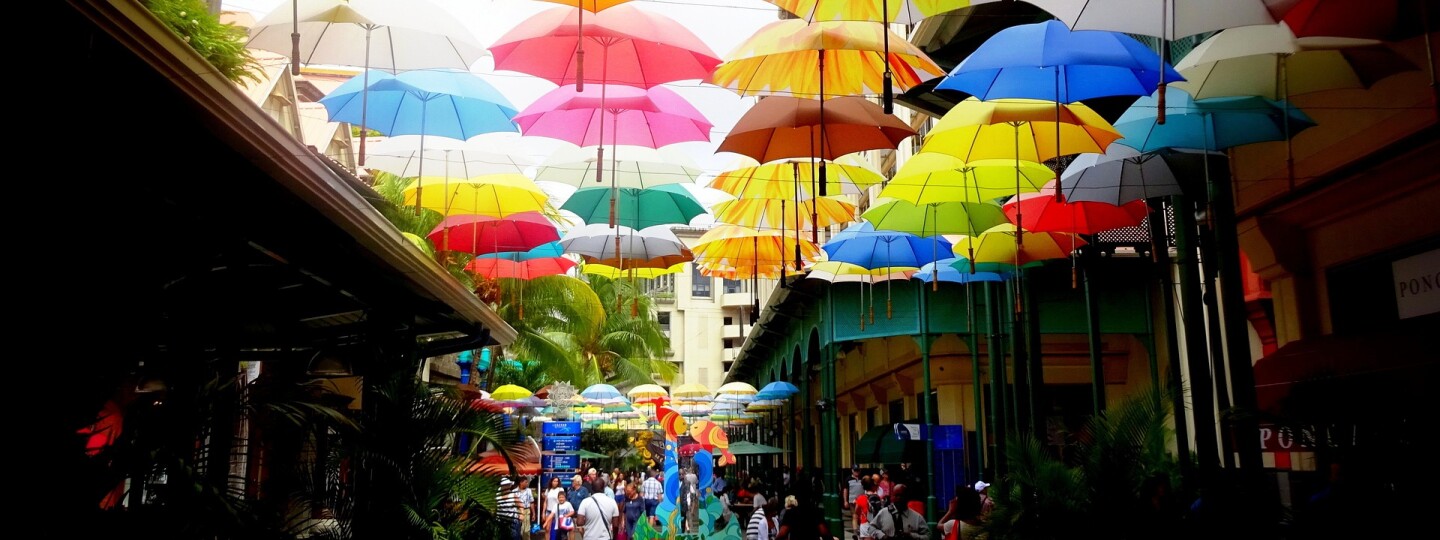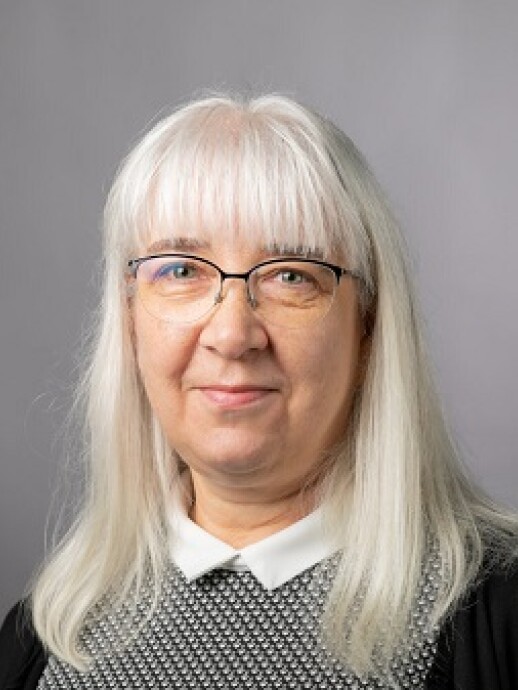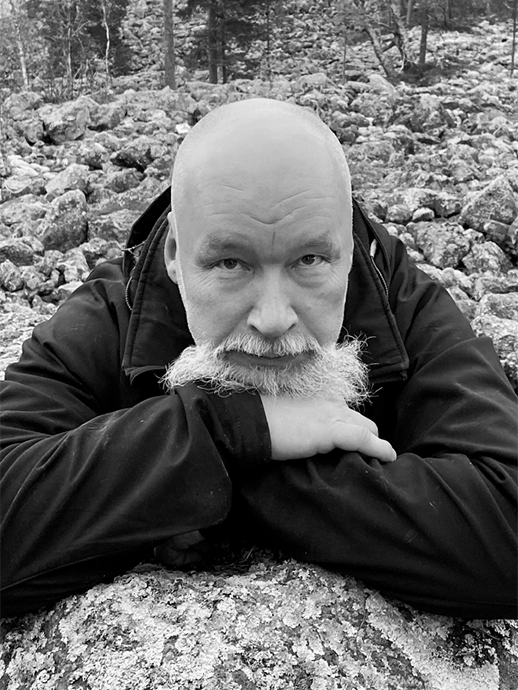Sustainable development brings together complex problems and emphasizes their systemic interconnectedness. It is not possible to solve global challenges only one at time, rather it is necessary to grasp all of them at once. We are looking for solutions both on the level of individuals and communities as well as on the level of societal structures, state and economy. The ultimate goal is the sustainability of ecosystems and global social justice. To achieve them, societal and cultural transformation is necessary.
We conduct research on images of futures leading the transformation and we produce processes to support it. The basis consists of cultural knowledge, skills and worldviews, human-nature relationship, futures literacy and heritage futures. They are interconnected locally and globally to power and societal structures. Research on transformation is transdisciplinary, thus it is executed together with different societal actors
Ongoing Research and Development Projects:
A research project funded by the Media Industry Research Foundation of Finland is exploring how Finnish media companies can responsibly leverage artificial intelligence while enhancing consumer confidence.
Conducted throughout 2025–2026, the project combines regulatory analysis, insights from an international panel of experts, and experimental consumer research. Its goal is to generate practical insights that support strategic decisions in the media industry and foster the development of innovative AI applications.
The study will focus on several key areas, including:
- The influence of EU regulations on the competitiveness of media companies
- Consumer perceptions of content created by artificial intelligence
- Solutions that build trust and ensure the authenticity of journalism
Led by Taina Eriksson, Research Director at the Centre for Collaborative Research (CCR), the project team includes Mikko Grönlund, Research Manager at the Future Research Centre; CCR Research Director Aki Koponen; Project Researcher Frans Björkroth; and Professor of Practice Alex Nieminen. The corporate partner involved in the project is Viestimedia Oy.
The findings will be published in a comprehensive final report in autumn 2026, offering valuable recommendations for the Finnish media sector.
Further information: Mikko Grönlund
A three-year research project funded by the Kone Foundation aims to increase understanding of the effects of media concentration, the homogenization of content, and changes in editorial practices on democracy in Finland. The project focuses on the press, particularly daily newspapers, which still serve the majority of Finns as an important source of current news.
The project’s objectives are, firstly, to describe and analyse the development and current state of press concentration, and especially how the finances of newspaper companies have evolved with concentration. Secondly, the aim is to analyse the extent to which the contents of newspapers belonging to the same publishing group are uniform both online and in print, and whether content overlap has increased. Thirdly, the goal is to study how group cooperation works and is implemented in the daily life of newspaper editorial offices, and how editorial offices perceive the effects of publishing group control.
The first step of the research is based on statistical and financial statement analysis, using tested economic indicators. The second step consists of quantitative and qualitative content analysis, looking at the printed version and online publication of a total of ten newspapers. In the third step of the research, we turn to the creators of the newspapers, collecting data through newsroom ethnography, surveys, and interviews.
Funding: Kone Foundation, 1.1.2025-31.12.2027
Further information: Mikko Grönlund, FFRC
The project is funded by the Helsingin Sanomat Foundation and the aim of the project is to provide new insights into the dynamics of crises news and information ecosystems during the Covid19 pandemic, where information production and information dissemination are increasingly complex and include multiple different actors.
The project produces new information and understanding about the roles of information providers in a crisis and the ways in which citizens acquire and evaluate crisis information and the roles of information providers.
Further information: Mikko Grönlund & Juho Ruotsalainen, Finland Futures Research Centre
https://blogs.helsinki.fi/koronapandemiajakriisitiedonekosysteemi/
The European Democracy Action Plan, presented by the European Commission in December 2020, intends to empower citizens and make EU democracies more resilient. As part of this plan, it expects to enhance transparency in ownership and control of news media.
The Euromedia Ownership Monitor (EurOMo) is a pilot project to fulfil this objective. Its flagship is a searchable database of media owners. The project also offers many other resources, such as country reports and media literacy toolkits.
The EurOMo is a consortium of national teams in each EU country, which are researchers in higher education institutions (HEIs) or independent research institutes. The University of Salzburg coordinates the consortium. The European Commission co-funds the project.
Further information: Mikko Grönlund, FFRC
The main goal of the Santtu project is to create a vision of the sustainable future of Savo's agriculture by highlighting scenarios and future images that deviate from the mainstream.
The project aims to: 1) create alternative future images of what kind of agricultural production the young people of North and South Savo dream of, 2) highlight production models that modern cattle farms can use to produce milk and beef as environmentally and resource-efficiently as possible, 3) create models that support the current better the diversity of the agricultural nature of the project area, 4) the information generated in the project is shared in an up-to-date manner for target groups.
Based on the measures, a vision of the sustainable future of Savo's agriculture will be created.
The project is carried out in cooperation with the Natural Resources Institute Finland (Luke), the Finland Futures Research Centre of the University of Turku and the University of Jyväskylä Business School. The project financed by the North Savo Centre for Economic Development, Transport and the Environment will be implemented in North and South Savo between May 1, 2024 and April 30, 2027.
Further information: Tuomas Kuhmonen

The Global Media & Internet Concentration Project (GMICP) meticulously monitors communication, Internet, and media markets across almost 40 countries, focusing on around two-dozen specific sectors.
This ambitious initiative assembles a diverse, multidisciplinary team comprising over 50 scholars and collaborates with nearly a dozen non-academic external partners. Their collective goal is to enhance the application of existing methodologies while pioneering new conceptual and methodological tools. These efforts are dedicated to addressing critical questions related to media and internet concentration in the contemporary landscape.
Further information: Mikko Grönlund, Finland Futures Research Centre
IN SITU: Place-based innovation of cultural and creative industries in non-urban areas is a project funded by the European Union’s Horizon Europe research and innovation programme. IN SITU is a four-year project that combines research and experimental actions to advance the innovation-related practices, capacities, and potential of cultural and creative industries (CCIs) based in non-urban areas of the EU countries.
The IN SITU project aims to better understand the forms, processes, and governance needs of CCIs located in non-urban areas of Europe and to advance the ability of non-urban CCIs to act as drivers of innovation, competitiveness, and sustainability for the locales in which they are located. A core defining aspect of IN SITU is the interlinking of research and practice through place-based IN SITU Labs – hubs for networking, training and capacity building, and monitoring case studies in six non-urban regions across Europe, located in Portugal, Ireland, Iceland, Finland, Latvia, and Croatia.
The IN SITU project consortium comprises 13 Full Partners from 12 countries. The coordinator of IN SITU is Centre for Social Studies (CES) of the University of Coimbra, Portugal.
In University of Turku, IN SITU project is running both in Finland Futures Research Centre and in Landscape studies in the Faculty of Humanities, where the leader of the University of Turku part of the project, Prof. Maunu Häyrynen, is situated. The part of Finland Futures Research Centre is led by Katriina Siivonen.
Further information: Adjunct Professor Katriina Siivonen and Senior Research Fellow Pauliina Latvala-Harvilahti, Finland Futures Research Centre
Project website: https://insituculture.eu/
The Finnish news media is undergoing a historic transformation. Digitalization, the platform economy, and artificial intelligence have fundamentally changed the production, distribution, and consumption of news. Advertising revenues for print media have collapsed, while online media advertising is growing, but its revenues often flow to global giants such as Alphabet and Meta. Domestic media companies have adopted digital subscription models, but engaging young people in particular with paid content remains a challenge.
In recent years, the media landscape in the Nordic countries has become highly concentrated. Norwegian and Swedish corporations have expanded across borders, and ownership arrangements have reshaped the market. In Germany, on the other hand, large media companies are looking for new digital sources of income and experimenting with artificial intelligence solutions.
The study will examine the types of business models being developed by news media companies in the Nordic countries and Germany – and what Finnish media companies can learn from them. The aim is to provide valuable information on effective strategies and warn of pitfalls to avoid.
The study will examine, among other things:
- The economic situation of the news media: analysis of financial statements and advertising market trends from 2015 to 2024.
- The role of artificial intelligence: how automation and algorithms are changing delivery work and business.
- Interviews: in-depth discussions with the management of around 15 media companies in the Nordic countries and Germany.
The final report of the study will be published in spring 2026. Its aim is to provide concrete recommendations and comparative data that Finnish media companies can utilize in their own operations and development work.
The project is led by Adjunct Professor Katja Lehtisaari from the University of Tampere. The research team includes Research Manager Mikko Grönlund (Finland Futures Research Centre, University of Turku), Professor Mikko Villi (University of Jyväskylä), and Professor Carl-Gustaf Lindén (University of Bergen). The project is funded by the Media Research Foundation.
Further information: Mikko Grönlund
SISU is a three-year research project that started in autumn 2023. It is part of the Strategic Research Council’s six-year JUST TRANSITION program.
The multidisciplinary research team of the SISU project models the macroeconomic impacts of new solutions to help people recognize different future scenarios, and the effects and experiences related to them. SISU provides spaces where people can create heritage futures – meanings, practices, and skills – based on sufficiency, which will leave future generations a sustainable world where people can thrive.
SISU seeks to harness the untapped potential of sufficiency solutions. The main aim is to ensure that the green transition and basic welfare state promises can be realized even in conditions where the economy does not grow.
The SISU consortium consists of research teams from the University of Eastern Finland, Demos Helsinki, LUT University, University of Turku and XAMK (South-Eastern Finland University of Applied Sciences). The consortium is led by professor Arto O. Salonen from the University of Eastern Finland. Adjunct Professor Katriina Siivonen from Finland Futures Research Centre acts as a deputy director for the consortium, as well as leads the work package 'Heritage Futures for just transformation'.
Further information: Katriina Siivonen
A two-year ECOCRIN project (2023–2025), funded by Business Finland, has started at the Turku School of Business, combining the needs and the development tools of the creative industries into new ways of making innovation and cultural policy. ECOCRIN works with private, public and third sector actors at local, regional and national level.
The project's cooperation network includes Kings' College London, Latvian Academy of Culture, Stockholm School of Economics in Riga, University of Coimbra, Utrecht University and, from Finland, Arts Promotion Centre Finland, City of Pori, Culture Campus Turku, Creative Finland, Cupore, Kuhmo Arts Centre (Kuhmotalo), the Ministry of Economic Affairs and Employment and Tapahtumateollisuus.
At the University of Turku, the project is led by Professor Jarna Heinonen (Entrepreneurship) and consists of three teams. Her team includes Adjunct Professor, Senior Research Fellow Pekka Stenholm, Senior Research Fellow Kaisa Hytönen and Senior Research Fellow Tommi Pukkinen. The team at the Pori Campus consists of Adjunct Professor, Senior Research Fellow Arja Lemmetyinen.
In addition to theoretical expertise, the Finland Futures Research Centre will bring to the project the participatory methods of the Heritage Futures Workshops and the Futures Literacy Laboratory, which are based on co-creation and support futures thinking. The team is led by Adjunct Professor and University Lecturer Katriina Siivonen. She is joined by Adjunct Professor and Senior Research Fellow Pauliina Latvala-Harvilahti and Project Researcher Amos Taylor.
Project website: https://sites.utu.fi/ecocrin/
More information: Pauliina Latvala-Harvilahti, Finland Futures Research Centre
UNESCO Chair in Learning Society and Futures of Education project is part of the global Futures Literacy network coordinated by UNESCO. The project develops futures education contents and methods for informal and formal education that can be utilized worldwide.
Unesco Chair: Learning Society & Futures of Education
Further information: Markku Wilenius & Laura Pouru


